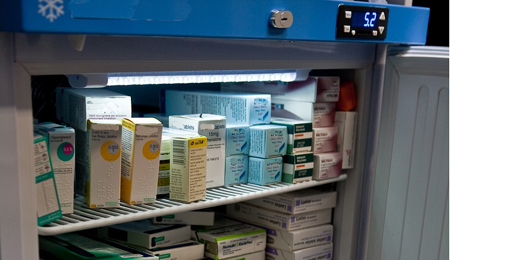Amendments to pharmacy regulations to introduce OPD +/- 10% dispensing
New Original Pack Dispensing (OPD) rules, central procurement of certain vaccinations for community pharmacies, and changes to the market entry application process are being introduced in The National Health Service (Pharmaceutical and Local Pharmaceutical Services) (Amendment) (No. 2) Regulations 2024. These PLPS amendment regulations were laid this week on Tuesday 3 September and are due to come into force over the next few months.
Original Pack Dispensing (OPD) – comes into effect for NHS dispensing on 1 January 2025
In October 2023, changes to the Human Medicines Regulations (HMRs) allowed pharmacies to dispense up to 10% more or less than the quantity prescribed (OPD +/- 10% dispensing) for private prescriptions for POMs. From 1 January 2025, pharmacies will have the same discretion with NHS prescriptions.
The PLPS amendments will, for NHS dispensing:
- require the supervising pharmacist to consider OPD +/-10% dispensing for NHS prescriptions, as appropriate, and
- give the pharmacist the flexibility to supply up to 10% more or less than the prescribed quantity, if that would mean the medicine could be dispensed in the manufacturer’s original pack, and other prescription requirements are fulfilled
Professional judgment should be exercised to assess the suitability of applying OPD +/- 10% dispensing, and it is not expected to be appropriate in all cases. For example, if a patient is prescribed antibiotics or steroids and the supervising pharmacist considers that the patient should be supplied with the exact quantity prescribed to be able to follow the medication regimen, OPD +/- 10% dispensing should not be used.
The PLPS amendments will require the supervising pharmacist to consider OPD +/- 10% dispensing from 1 January 2025 but they don’t require its use. For example, IT system suppliers may not introduce the necessary changes to the pharmacy IT system until after 1 January 2025, or there may not be the appropriate stock in the pharmacy.
The following table shows the products that will be reimbursed for OPD +/- 10% dispensing – where up to 10% more or less is dispensed and claimed:
|
Product type
|
OPD +/- 10% in the PLPS
|
|
| Yes | No | |
| POMs | √ | |
| Non-POMs (P, GSL, non-medicines including ACBS (Advisory Committee on Borderline Substances) products, food supplements, cosmetics, toiletries etc) | √ | |
| Schedule 5 Controlled Drugs (Sch 5 CDs) | √ | |
| Schedule 1-4 Controlled Drugs (Sch 1-4 CDs) | √ | |
| Unlicensed specials (Part VIIIB, Part VIIID and non-Tariff specials) | √ | |
Additional points include:
- Reimbursement for OPD +/- 10% dispensing will only apply to EPS prescriptions. The small percentage of FP10 paper prescriptions dispensed will continue to be reimbursed in line with current arrangements.
- OPD +/- 10% dispensing will not apply to supplies in accordance with Serious Shortages Protocols or Patient Group Directions. It may only be used for dispensing prescriptions.
NHSBSA and IT system suppliers are starting to prepare for these changes to align pricing and PMR systems with OPD rules.
More information on the OPD +/- 10% rules can be found on our webpage HERE and we will issue further guidance on these provisions later in the Autumn.
Central Procurement of Vaccinations – comes into effect 1 October 2024
The PLPS amendments referenced above allow the supply of Pertussis vaccine to community pharmacies from national stocks without purchase by the pharmacy (and with zero or nominal reimbursement). The provision for central supply was introduced for Covid-19 vaccines and antivirals, and earlier this summer two other vaccines were added, MMR vaccine and RSV vaccines in The National Health Service (Pharmaceutical and Local Pharmaceutical Services) (Amendment) Regulations 2024. Central supply of these vaccines enables community pharmacies to play a vital role in public health vaccination programmes, according to local needs.
Market Entry Applications – comes into effect 1 October 2024
Applications to open new pharmacies usually involve two parallel, related applications, the market entry application, for example, to establish a new NHS pharmacy, and a related fitness information application, to ensure that the new owner of the pharmacy (corporate or individual/partnership of pharmacist(s)) is a fit and proper person to own an NHS pharmacy. In many cases, fitness information is required from existing contractors.
The change coming into effect on 1 October is to the fitness information application. The requirement for references (from referees nominated by the applicant) will no longer be required. References were considered to be of limited value and obtaining them often resulted in delays to the whole application process. This change should make this part of the process less onerous for applicants and help to reduce delays with market entry applications.
These changes apply to new and existing applications. However, with an existing application, if the ICB has relevant information that suggests a reference should be sought, it may do so.








